Hacking addiction with ibogaine: an interview with Patrick Kroupa
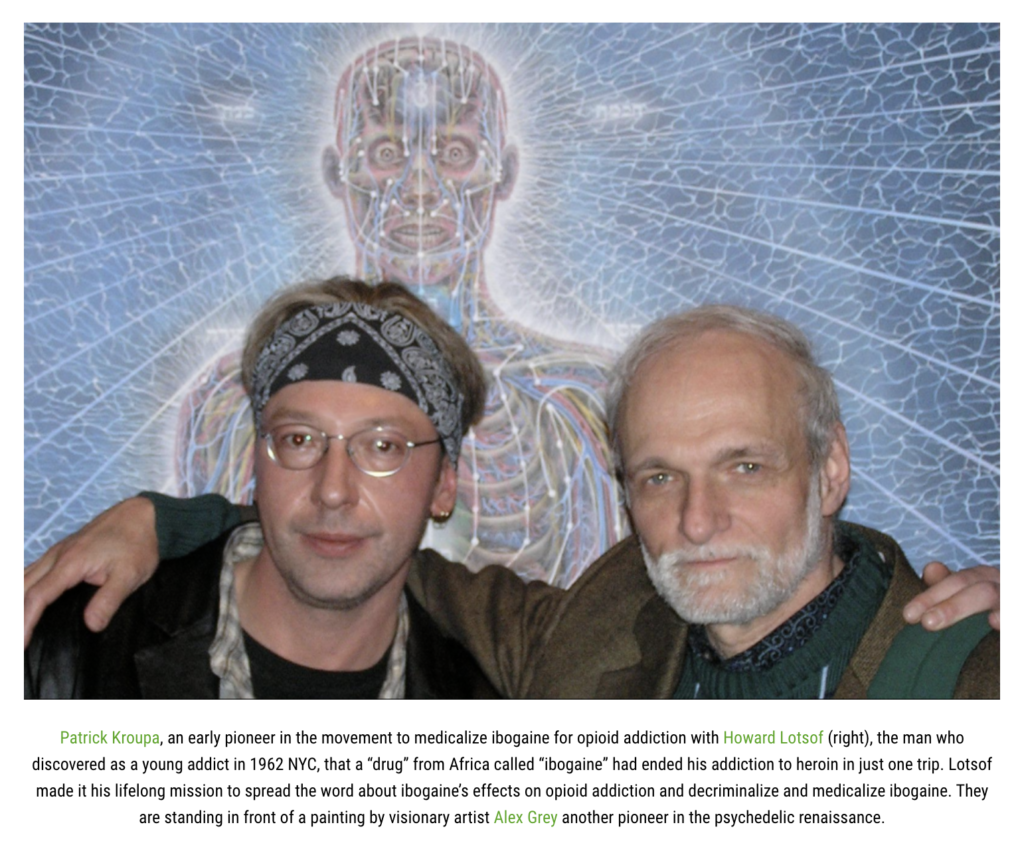
Lakshmi Narayan Hi Patrick, I’m most interested in how you kicked your heroin addiction. How did you first get introduced to ibogaine? Can you tell me what happened? Both in external and internal terms, if possible, to the extent that you feel up to it.
Patrick Kroupa Sure. I had one of those toxic childhoods that are so popular. And I also had a lot of weird interests at the time because my father was, and still is, a physicist, and I had access to computers and an Apple II in the late 70s, when very few people had any idea what any of this was. So I was involved in the hacker underground as a kid. My parents divorced, I ended up growing up as a white kid in Spanish Harlem during the 80s, early 80s, when it was considerably different than it is now. Now everything is beautiful and gentrified, and all traces of the past have pretty much disappeared.
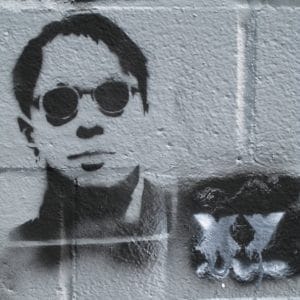
I grew up in a neighborhood where I was completely surrounded by drugs, five dealers on every block sitting in the doorway. And, you know, you grow up and you see all that around you and it feels familiar.
My introduction to ibogaine was pretty random and unexpected. I was 13 or 14 or so. I started going to these meetings called TAP, which stands for Technology Assistance Program, and it was actually a kind of photocopied newsletter that was started by the Yippies. It was all about using technology to empower yourself. And my motivation for going to these meetings was that I was a kid and a lot of my friends went there. We wanted to talk about technology and computer systems and networking. And what I found there instead was that more than half the people who were there were really weird older people rambling about counterculture and politics and rebelling against the system. And this was all very new to me. I had no idea about it before that.
LN: You stumbled onto something there.
PK: It was an interesting world. They were fundamentally very different human beings. And they all had good intentions; they wanted to change the world and make it a better place. And the first time I heard about ibogaine was there and honestly, at that point, that was it.
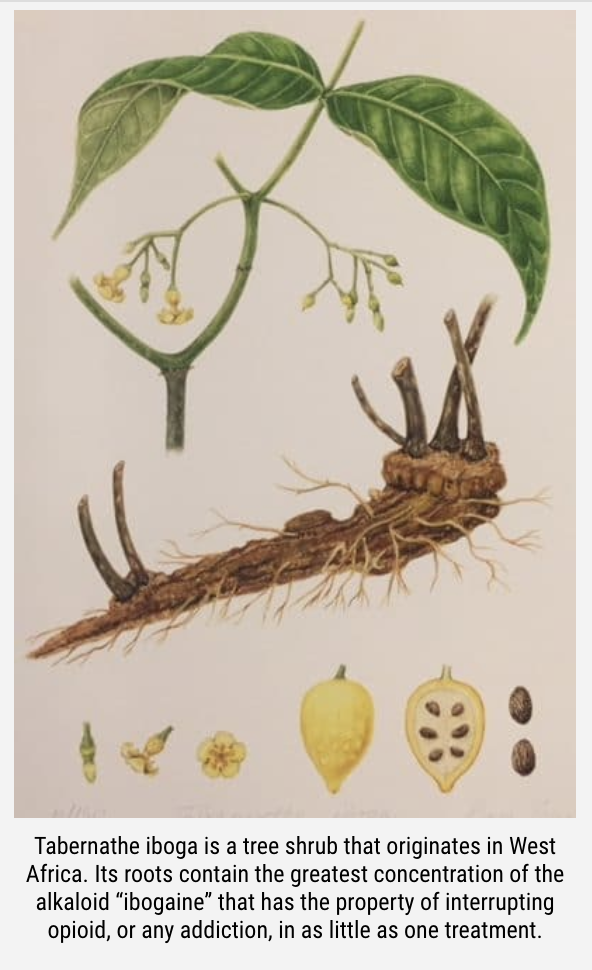
It was basically a textbook definition of snake oil. This mysterious substance that comes from a faraway land, that only a very small group of people have ever tried. And that will magically cure every addiction that has ever existed. And by the way, it’s very expensive and always available.
At the time I was like, “Okay, yeah, whatever.” That’s fascinating. Just something that kept coming up at TAP meetings, and at the time, I was experimenting with drugs, I was taking heroin. I was taking psychedelics, but it wasn’t a problem for me. For me, it was just things that I was doing.
LN: So you were like a high-functioning “addict,” if I may use that term.
PK: Yeah, I was a high-functioning addict for many, many years. Well, what ended up happening after that was that in the early ’90s, a friend of mine named Bruce and I started a system called MindVox. And our reasons for doing it were simply that we were messing around with technology; we wanted to get a system up and running. And what happened at that point was that the Internet became public and there was a huge explosion of activity: we were the right people in the right place at the right time.
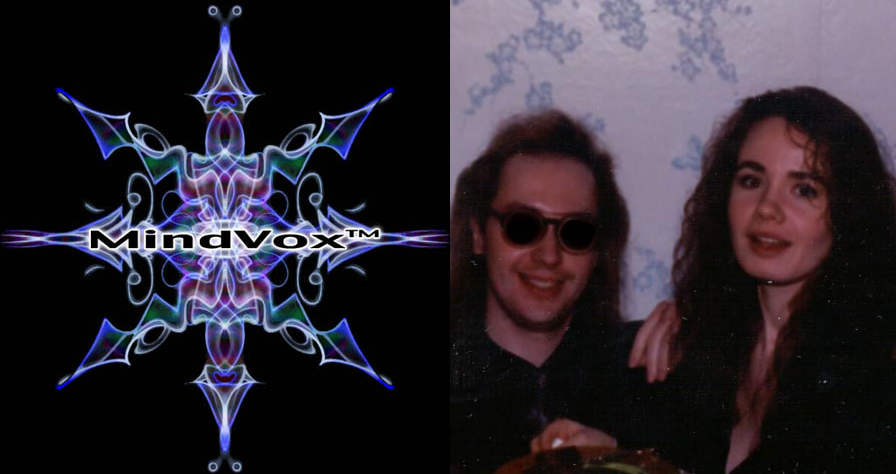
And we became the first internet access provider in New York City. Wow! I’m 21 years old and everything I ever wanted in my life is coming true. This company that we founded is growing, it’s getting huge, we’re having a lot of success, everything is great except for the fact that, again, throughout this whole process, I was a high-functioning heroin addict. And as I became more successful and the business process went on, I became more and more addicted.
And to make a long story short, I was shooting up speedball, it’s very hard to remain functional when you do that. If you’re on heroin, it’s not exactly a pipe dream. You can spend decades of your life addicted to opioids and still function. When you start mixing cocaine, meth, and all this other stuff, there aren’t a lot of high-functioning polyaddicts shooting up speedball.
LN: Were you programming at the time?
PK: Yes. I wrote hacking programs, I experimented with networking. I mean, if you’re doing heroin, it doesn’t mean you have brain damage; it just means that you’re generally extraordinarily calm and at peace with everything. It doesn’t stop you from being successful at something or achieving things.
LN: Was it part of that culture, the tech culture, to do what you were doing: heroin, speed, stimulants and depressants, that kind of thing?
PK: Not really. A big part of hacker culture is psychedelics. I mean, that’s something that’s empowered all of Silicon Valley since its inception. And that’s not a big secret. There are many, many books written on the subject. John Markoff wrote a book that focuses specifically on psychedelics (and technology), called What the Dormouse Said.
LN: It’s even reflected in the Apple logo.
PK: Yeah, and Steve Jobs was pretty open about it. I mean, he mentioned taking LSD as one of the most important things he’s ever done in his life. And he wasn’t alone or unique in that regard. John Gilmore was one of the first employees of Sun Microsystems, which basically powered the Internet in its early days. I mean, this is before Linux and BSD, Open BSD, all these different things. He was a big proponent of psychedelics and he would show up regularly at Burning Man and he was very outspoken about his involvement there. But you know, drugs and technology were very intertwined from the beginning. But this is psychedelic drugs; hard drugs, not so much. It was the whole drug thing anyway. It was a lot of fun until it wasn’t.
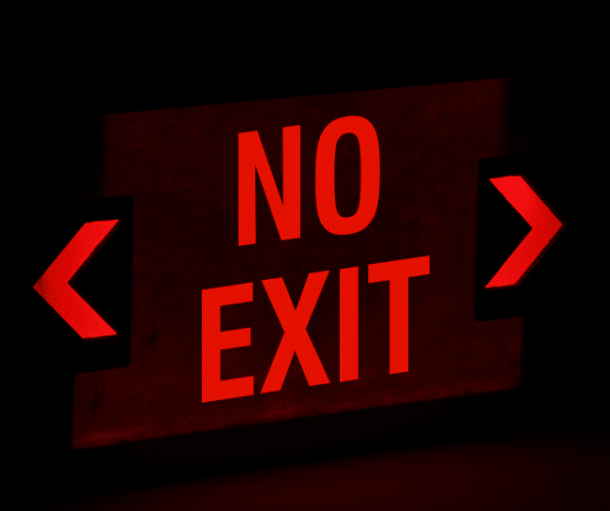
And so, at that point, I found that there is no way out. I tried to detox using all the conventional methodologies, all the paradigms that were around back then, which was the 90s. And all of them are remarkably similar to what we have now.
I mean, I was on reduced doses of methadone. I was on methadone maintenance. I participated in an ultra-rapid opioid detox. I did it twice. I was in very early clinical trials for buprenorphine, and when they were trying to make it bioavailable sublingually, which they obviously succeeded in, because it became Subutex and Suboxone. And none of that worked for me. I mean, I was fine, I was clean, that’s great. I’m clean, except all I can think about is feeling normal. I feel like shit, I feel absolutely terrible. I’m having a really hard time functioning. This is horrible.
And at that point, I started looking into alternative treatment methodologies. And at the time, one of the biggest things was something called the 10S unit, which was basically electronic acupuncture, and there was a guy named Dr. Richard Resnick, who was at Columbia. You walk into his office and he has signed pictures of Pete Townsend and Eric Clapton on his walls. Unfortunately, it didn’t work for me on the TENS unit. So I ended up going back to ibogaine. Oh, yeah, ibogaine… I keep hearing about it. And I know what it is; I can go look on the MindVox system that we’re running, and there’s some crazy person from an organization called Cures not Wars, which is, of course, Dana Beal and number nine Bleecker Street and all that. And that person posted a semi-incoherent, rambling message about ibogaine on like 15 different forums. I mean, we had a very active drug section, but they totally missed it. And it was like, why are you posting this garbage everywhere? And they did. And I noticed that and I also knew a person named Fred Gotbetter well, who has a great name, but he never got better. I was with him on the Lower East Side, and he was a guy I saw.
We were at the same shooting range, and he was a complete mess, and then he would disappear for two or three days. He would come back and he would be completely clean. And to me that was like, “How the hell did you do that? This is impossible. What are you doing?”
“It’s this ibogaine. Ibogaine really works. It’s great.” And you know, he brought out the whole backstory and added it to the material that I already knew.
It was a very surreal comedy routine, watching this guy get clean, completely reboot, and then go back to using drugs. In his case, his motivation was that he didn’t really want to get clean at all, he just had a trust fund, which depended on him peeing clean in a cup in order to get his check. So his whole motivation was to stay clean long enough to get his trust fund check and then do it again. But anyway, that really shocked me, because what I was witnessing seemed impossible.
So I tried to get ibogaine, and this is the 90s. So I got in touch with Howard Lotsof and started talking to him a lot. At that time, Howard was no longer able to offer treatments in Panama. He was starting to deal with his own health issues, like leukemia. And, you know, he passed me on to another person named Bob Sisko, who was also involved with ibogaine. And interestingly enough, Bob Sisko connected me with Dr. Deborah Mash at the University of Miami.
What happened was that during the 90s, the FDA was so impressed with the existing anecdotal observations and preclinical data in animal models that it took a very broad view of the available data and actually green-lighted clinical trials and human drug-dependent subjects in the United States, which was an astonishing achievement in the 90s because this is a Schedule I drug. And after that, NIDA, which is responsible for giving out grants—they’re the ones who fund the vast majority of research that goes on in academia—shut it down and just refused to provide funding and said it wouldn’t be considered any further.
What’s amazing is that Dr. Curtis Wright from the FDA wrote a personal letter to NIDA urging them to at least give ibogaine a chance. And again, this is the FDA asking NIDA to do it. But NIDA still didn’t do it. And at that point, the director of NIDA, a guy named Frank Vocci, issued a public statement saying,
“The American people are going to think that everyone in Washington is completely crazy,” and they basically didn’t like it, because it has this side effect of you becoming numb after doing it.
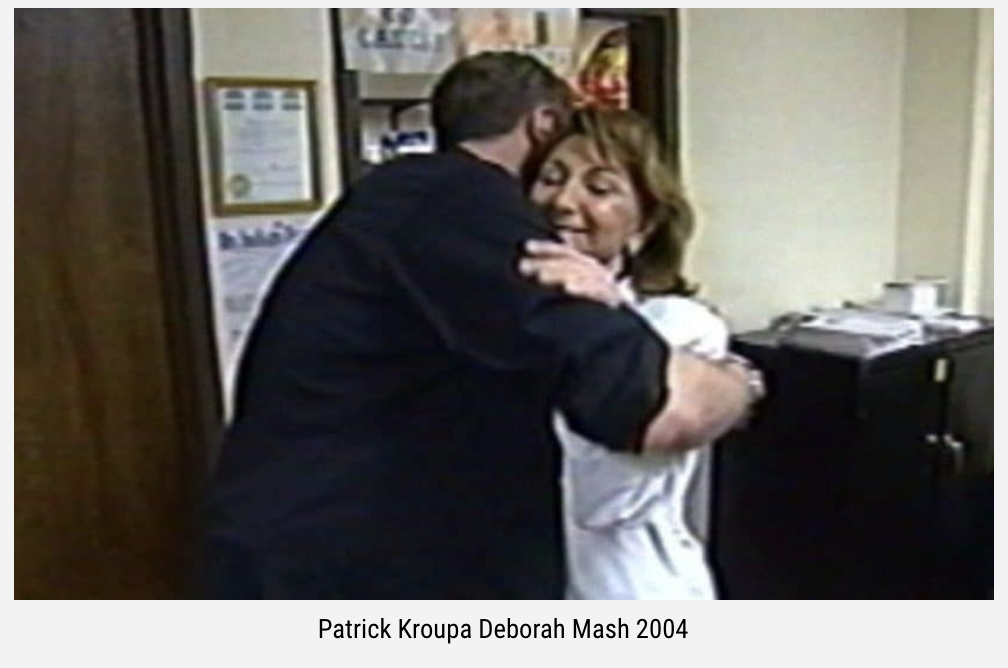
So that ended. But anyway, at the time that I came across all of this, I landed in St. Kitts, which is where this clinic was located. And I was on 200 milligrams of methadone a day, and I was doing about a gram and a half to two grams of heroin on top of that, every single day.
It’s a lot, I mean, it’s enough to kill about 15 or 20 people who don’t have a tolerance. If you have a tolerance, it’s not a big deal. And here in 2019, where there are people who are addicted to fentanyl, it’s not a big deal at all, because what people are addicted to right now is crazy. The fentanyl variants that are coming out and the amounts that people are consuming are just crazy.
Before you take ibogaine, you have to switch to a short-acting opioid. In my case, they used morphine for that purpose. And before you get the dose, you have to have passed the half-life of the molecule and entered the withdrawal phase.
Then you start experiencing withdrawal. I sweat, I shake, I feel like my entire skeleton is being crushed in a press, I get really hot, I get really cold, I feel like my skull is compressing my brain. I mean, you feel terrible. It’s like pain, because you’re starting to experience withdrawal from an extremely strong habit.
Then I took ibogaine.
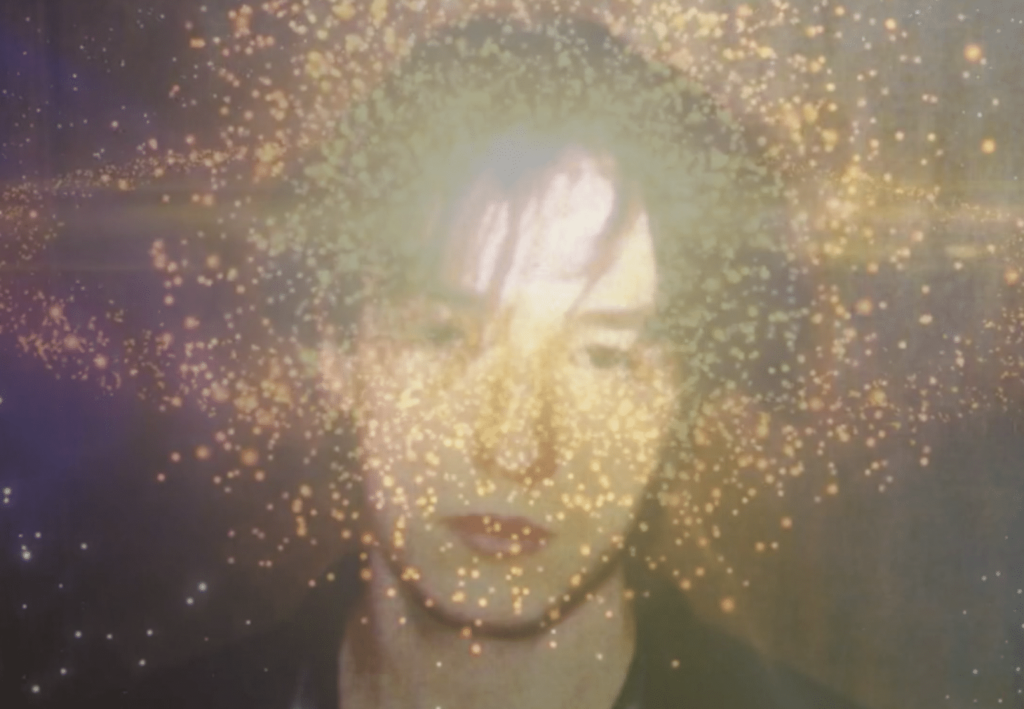
And what happened is, within about 30 to 45 minutes, I felt like there was a ball of heat in my solar plexus, and it was slowly curling up my spine, and as it did, the pain was easing up. And it felt like I was suspended in an ocean of warm energy. And right at that moment, right there, that’s the closest thing I’ve ever personally experienced to a miracle, because you go from being completely high to saying, “Oh, hey, your habit just ceased to exist.” And that was extraordinary. There was no pain, there was no… there was nothing! It’s like, you know, the God of biomechanics just passed his hand over you and removed the disease.
And then immediately afterward, I got really busy because that’s when you start to trip. Of course, you’re really busy for the next six to ten hours, you know, depending on what kind of metabolism you have. And I think you’re probably familiar with that part, because as far as I know, you’ve personally tried ibogaine yourself.
LN: I am, but from what I’ve heard, everyone’s journey is completely different. And the “maximum dose” that’s given for addiction is different than what’s given for a psycho-spiritual trip, which is what I experienced. So I’d be interested to know how much of your journey you’re willing to share. Apparently, not everyone gets high on ibogaine, but if you do, that’s where a lot of reconciliation happens.
PK: For me, my initial trip with ibogaine was basically going to hell and getting killed over and over again. It wasn’t very fun, I didn’t enjoy it. And it was probably a big reflection of my mental state and the life I was leading at the time. It wasn’t a pleasant experience. But that being said, I was already very familiar with psychedelics, and ibogaine is not a classic psychedelic. It has very little affinity for 5-HT2A, which is the receptor that the vast majority of classical hallucinogens attach to. It’s more of a oneirogen, a substance that induces dreams. Personally, it hasn’t really shaken me that much. Taking two or three milligrams of LSD will cause you ego death, no matter what, whether you want it or not. If you go over the shitty dose of sixty to a hundred micrograms, you up it and you’ll experience ego death.
LN: Yeah, definitely.
PK: But, having said that, again, my experience with LSD while I was high is wonderful. You can have the greatest realizations in the world, you can experience ego death, there’s no separation between you and everything in the entire multiverse. You’ve achieved divinity, you are everything, everything is you and there’s love and there’s light and there’s freedom.
And unfortunately, when you come back down to earth and you reintegrate, what you find with LSD is that it hasn’t done anything at all for your addiction. Your drug dependency is still alive and well and, oh, hey, you need a fix. You see. That’s the part where ibogaine was considerably different. The reboot happens immediately before you start tripping. So you’re not going through withdrawal while you’re tripping.
LN: Can you feel that? Do you know the moment when you’ve been rebooted?
PK: Yes, because you’re in full withdrawal, which is basically like being tortured. Of course you can feel it! You go from a state where you feel like you just want to die because you’re experiencing so much pain to Hey! It’s all gone. Wonderful. Incredibly dramatic. That’s the end of my first experience with ibogaine. I would classify it as my most important experience because I started after 16 years of heroin use. And that was what made me reset. I reintegrated, I came back down. The visionary and spiritual part of my first trip, like I said, didn’t change my life that much. It’s like, well, this is a really bad trip to hell.
LN: About dying and going to hell, a lot of people have that experience of something really bad happening. And I just want to say, for the record, that sometimes it feels like you’re going on a hellish trip, but what’s really happening is that things are being released. And as that’s happening, they’re magnified in your consciousness and you don’t even recognize it as a release, but you come out of it and something has changed.
PK: Absolutely, I agree with that a lot. It gives you a change of perspective on how you see yourself and the world around you and the situation you may be in.
But anyway, what happened to me after my first experience with ibogaine is that I wasn’t going to go back to New York City. As you know, I met Deborah Mash there, and she recruited me and brought me into her world. And instead I flew to Miami. And on the flight out, there’s an agent, there’s a guy who’s supposed to make sure that you manage to change your flight to go to an aftercare center. And, you know, the first thing I did, as soon as I got to the airport in Puerto Rico, was ditch the agent, walk out the door, grab a cab, and go get heroin, which was ridiculously easy in Puerto Rico.
LN: That was what… the addiction? I thought you had gotten over it… I guess not?
PK: Well, here’s the thing, Lakshmi.
First of all, as soon as you break free from drug dependency, everything that you haven’t processed for all those years comes crashing down on you all at once. And it’s like, oh, yeah, that’s why I started using heroin in the first place. And it’s overwhelming.
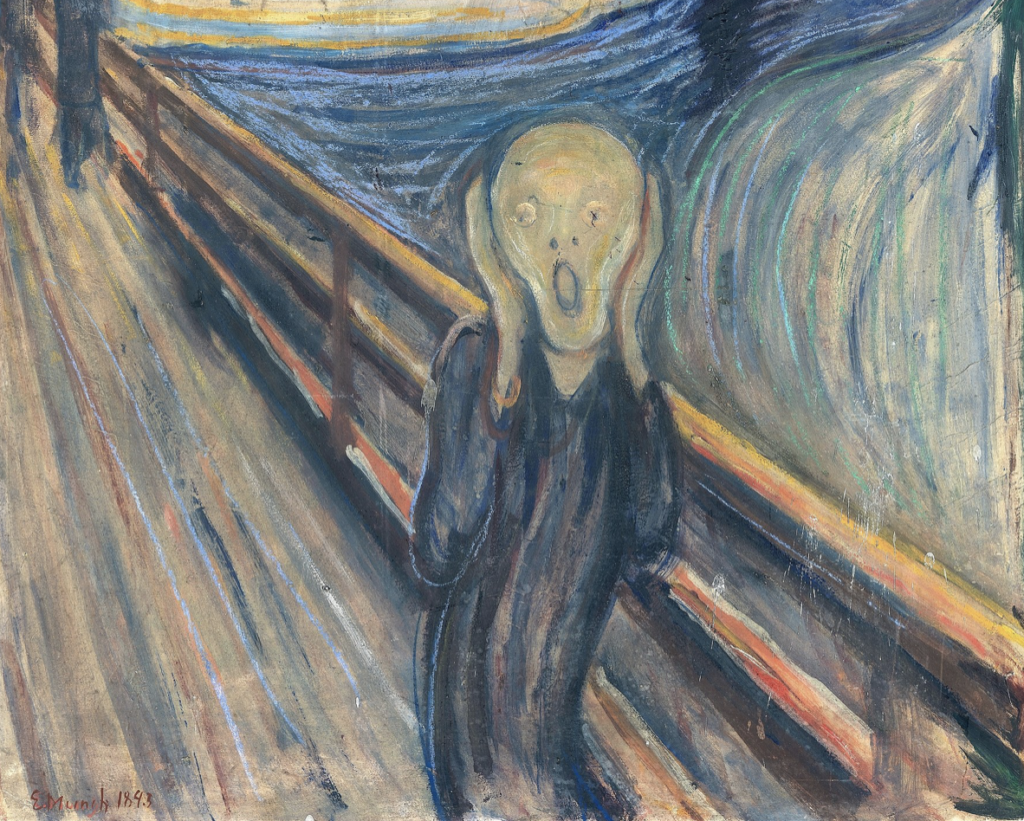
And, for me, maybe it was being on autopilot. But it was like I needed to get this noise in my head to stop. I mean, to sum it all up, I had PTSD, I had a variety of co-occurring disorders, I had all this stuff that I hadn’t processed at the time. So, anyway, I went to Miami and then I came back immediately as soon as possible to do it again. I mean, at that time, it wasn’t possible to come back a couple of days or a week later, they had rounds, you had to wait like six weeks. So I took ibogaine again the second time, about six weeks later. And what was different between the first and the second time was that I understood that, well, this is what ibogaine will do, it will absolutely and unequivocally restore my dependence on drugs, my habit will be gone, I will be free of it. But here’s the part where I have a lot of work to do. And I have to deal with all of this stuff, I have to process it and integrate it all. And I have to do something with myself.
And, you know, I tried so many different detoxes and rehabs and I was completely fed up with the 12 steps. And none of that worked for me. It’s like, Okay, I have enough problems. I don’t need an imaginary illness, where I’m sick and defective and powerless. That’s nonsense. How about I write a script where I’m empowered, I’m whole, I’m a human being? And based on all of that, my thought processes were just that going to an aftercare facility wasn’t going to work for me, because I already knew what it was going to be like. It’s like, here’s a bunch of group meetings. Here’s this, here’s that.
And the 12 steps are like borrowing a phrase from Einstein, which is “A reasonable definition of insanity is repeating the same thing over and over again, and expecting different results.” And they also like to say, “Take what you find useful and leave the rest.”
So I did. I did something completely different.
LN: Yeah, I think for someone like you who already has a lot of structure, because you like technology, structure is not what you need for integration. And that’s what a lot of these programs and group coaching and the 12 steps offer: structure for people who don’t have it. But I guess you needed something more.
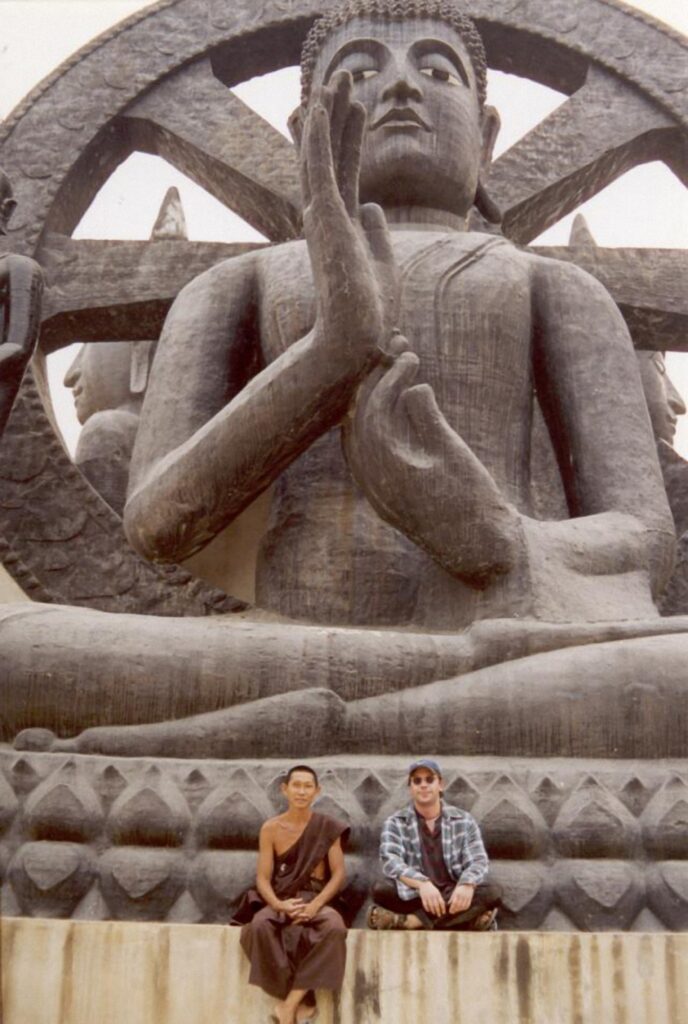
PK: In my case, what I did was I went to live in an ashram in Thailand. I stayed there for three months. I found that there were people who were extremely open-hearted. I mean, you can say that they have unconditional love, unconditional acceptance, but they are not judgmental at all. They had never heard of the 12 steps, their views on Western psychology were… Well, you sit there and talk about your problems forever. What exactly does that do? My answer to that is I don’t know, it’s a good question. What the hell has it done for me? I mean, I know what my problems are, what I don’t have is a solution to change.
I took LSD while I was there (laughs). I hung out with Buddhists. And I processed and integrated all the events in my life that had led me to that moment. And it worked for me. It worked for me in an environment that was very strange, because they provide very limited structure. I mean, if you seem to need it, they will help you with the structure. If you seem to provide your own structure, they don’t bother you. They don’t have anything to sell you. Right. And it was just very beautiful. And then I came back to the States and started working for Deborah at the University of Miami’s Department of Neurology, which was the ibogaine research project.
And that was it, by the way. My second reboot worked. That was Halloween 1999. That’s my clean date, the last time I took opioids.
For me, psychedelics, entheogenic compounds have had a significant, lasting, extraordinarily positive impact on my life. They kind of put the whole multiverse into perspective, they help you see yourself and understand what you are, and I think they help you become a better person. I mean, I’m certainly a much kinder person. After psychedelics, I’m much more in tune with everyone around me. Microdosing these drugs encourages creative thinking and finding innovative solutions. You’re basically using them to enhance your brain.
LN: I totally agree with you about the benefits, but just so people don’t think it’s all a bed of roses to feeling better and better… there’s a lot of work involved in the psychedelic journey, a lot of integration work, don’t you think, over the course of a lifetime. It’s like you go into dark places and you have to figure things out, but it gives you more tools and more insight to be able to do it.
PK: Oh, absolutely. Entheogens don’t bring enlightenment. Okay, you have ego death, you’re resonating with truth, you’ve ceased to exist, you’re experiencing God, you’re no longer you, but then you come back down, you slide down to earth, you reintegrate, and you know that you’re still “you” and you have to work on yourself and do something, you have to significantly change your behaviors in many different ways, which is why aftercare with ibogaine is so important.
LN: You yourself went to an ashram for aftercare, and that ended up being what you needed to do. And there are probably other people like you, who have some spiritual philosophy or some practice that appeals to them, and making that philosophy or practice a part of your life or having a “framework” within which you can explore this chaos that has broken out in your skin is a very good idea.
PK: I totally agree. I, personally, believe in God, whatever you want to call it, or whatever that means to you. Anyone who can reconnect with spirituality has an important source of strength that helps them overcome all these obstacles and continue their journey. It makes things a lot easier. But on the other hand, I know a lot of people who are atheists, who remain atheists after taking psychedelics, and it’s like, okay, that was interesting. I got blown away, there’s all this stuff. It’s like being on the holographic platform and when they come back, they believe in the same things in the world that they believed in before and they managed to stay clean. It depends a lot on the individual. What worked for me may completely fail for someone else, and to be honest, the 12 steps work for a lot of people, but I wasn’t one of them. You have to find something, it’s up to you to find what you resonate with and go with that.

 SØR
SØR Mexico
Mexico